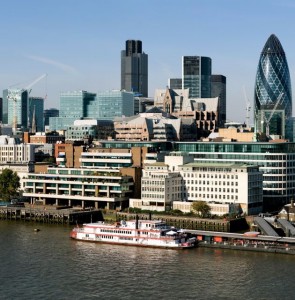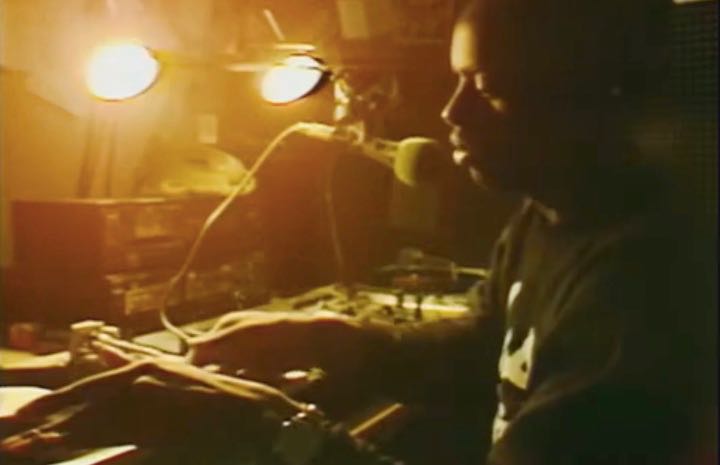Many thanks to SWLing Post contributor, Mark Fahey, who shares a link to this BBC documentary about pirate radio:
Tag Archives: London Pirate Radio
The Internet and community licenses have changed the London pirate radio scene
Many thanks to SWLing Post contributor, David Korchin (K2WNW), for sharing the following article from The New York Times:
London’s Radio Pirates Changed Music. Then Came the Internet.
LONDON — In 1993, the illegal radio broadcasters at Kool FM came up with a plan to keep the regulators from raiding their studios.
In those days, the rooftops of South and East London still bristled with unauthorized antennas. Installed by pirate radio stations on top of public housing blocks — the city’s tallest and least secure buildings — they transmitted sounds rarely heard on the BBC or commercial stations. Kool FM was at the heart of the scene, broadcasting jungle, rave, and drum and bass music from the Hackney district of East London.
All the pirates needed was a key to the building — easy to buy off a building worker or tenant — and a cheap transmitter. But they had a problem. Illegal broadcasting is, well, illegal, and, in Britain, pirates can face up to two years in prison, unlimited fines, bans from appearing on legal stations and equipment seizures.
So the pirates at Kool FM covered their studio door with concrete. To get in, they had to scale the outside of the building, jumping from balcony to balcony, said one of the station’s founders, who declined to give his real name but who broadcasts as Eastman. On a recent afternoon, he was standing outside Kool’s current studio in a warehouse on London’s outskirts. Drum and bass sounds from a D.J. called Papa G. emanated from behind the wall.
The regulators rarely bother them now, he said, and capers like the one he described are scarce. In the early 1990s, Kool “was the in thing,” said Eastman. But he estimated that Kool has lost 90 percent of its advertising revenue since its heyday. “We’re struggling because it’s hard to raise money to keep the station going.” Kool has recently rebranded as Kool London, and started focusing more on broadcasting online, though its shows still go out on the old pirate FM frequency.
Kool’s problems are part of a broader trend: Ofcom, the British communications regulator, estimated there are now just 50 pirate stations in London, down from about 100 a decade ago, and hundreds in the 1990s, when stations were constantly starting up and shutting down. Ofcom considers this good news, because illegal broadcasters could interfere with radio frequencies used by emergency services and air traffic control, a spokesman said.[…]
[T]wo things happened that changed the landscape of underground radio: first, the internet, and second, new licenses that encouraged pirates to reinvent themselves along more official lines.[…]
Continue reading the full article at The New York Times.
Stream Kool London here:
Stream Reprezent 107.3 here:
Stream Rinse FM here:
Ofcom: Tackling pirate radio
This Ofcom press release focuses on the FM pirate radio scene in London–if interested, you might also check out this short documentary on London pirates.
(Source: Ofcom via Southgate ARC)
A new approach to tackling pirate radio has eradicated the problem in one London borough, and could save up to £1 million for Londoners by being rolled out across the capital.
Pirate radio harms local communities and the critical communications used by the emergency services. Ofcom, which manages radio frequencies, is hosting a summit on 3 November to explore the new approach to tackling the problem.
Pirate stations typically use high-rise buildings for their broadcasts, with illegal transmitters installed on rooftops or hidden in lift shafts. This damages residential properties owned by local authorities, disrupting residents’ lives and putting people at risk from falling equipment.
Ofcom has been working in north London, one of the UK’s most affected areas, with public housing body Homes for Haringey. In 2014, 19 pirate radio stations were illegally broadcasting in Haringey. By quickly removing their transmitters and regularly patrolling and securing rooftops, pirate radio has now been eradicated in the borough.
As a result, Homes for Haringey has saved £90,000 in enforcement and maintenance costs over the past year.
On 3 November, Ofcom is meeting with local authorities from across London to share the success of the Homes for Haringey partnership. If this collaborative and proactive approach is rolled out across the capital, local authorities stand to save an estimated total of £1 million per year.
Illegal broadcasting
Clive Corrie, Head of Ofcom’s Spectrum Enforcement team, said: “Illegal broadcasting harms local communities and risks lives by interfering with vital communications used by the emergency services and air traffic control.
“By working in partnership with local authorities, Ofcom is tackling this problem. We also strongly urge those broadcasting illegally to get involved with internet or community radio, a legitimate route on to the airwaves.”
Astrid Kjellberg-Obst, Executive Director of Operations at Homes for Haringey, said: “Pirate radio stations damage people’s homes and can be extremely distressing to our residents.
“We’ve seen huge success in tackling the problem with the measures that we’ve introduced, removing all pirate radio stations from Haringey and saving the borough tens of thousands of pounds in the process. We will continue to work with Ofcom to keep Haringey pirate-free.”
Harmful interference to emergency services
Pirate radio causes interference to critical radio services, including those used by the emergency services and air traffic control.
In 2014, the UK’s air traffic control service NATS has reported 55 cases of communications interference from pirate radio.
Ofcom also receives reports each week from the emergency services and other, legitimate radio services of illegal interference.
Ofcom has powers to seize illegal broadcasting equipment and prosecute those involved.
Accessible, legal alternatives to get on to the airwaves
For anyone wanting to broadcast a radio station, Ofcom offers accessible, legal alternatives to get on to the airwaves. Since 2005, Ofcom has issued community radio licenses, enabling small stations across the UK to get on-air right and serve their local communities. More than 200 community radio services are now broadcasting.
Ofcom is also supporting a new, innovative way for smaller stations to broadcast on digital radio. If tests are successful the system, called ‘small scale DAB’, promises to open up digital radio to smaller broadcasters for a fraction of current costs.
Southgate ARC notes Ofcom’s approach to FM pirate enforcement
 (Source: Southgate ARC news)
(Source: Southgate ARC news)
“The UK communications regulator Ofcom have published information about tackling pirate radio
Although Ofcom have occasionally raided pirate stations operating in the 88-108 MHz band, such enforcement actions have been few and far between.
After the 2008/9 financial year, Ofcom stopped publishing their Prosecution/Formal Warning Statistics and subsequently removed all prosecution statistics from their website, perhaps to hide the fact that they no longer published them. It may be speculated the reason the statistics no longer appeared was because Ofcom had stopped undertaking enforcement action.
Currently in London there are over 25 pirate stations operating in the 88-108 MHz band. Many operate 24/7 so are not exactly difficult for Ofcom to locate if they wished.
In the Pirate Radio page Ofcom point out that they have issued Community Radio licences to former pirate radio stations such as Rinse FM and Kane FM. The inference that may be taken is Ofcom would like pirate radio stations to apply for community radio licences.
Read Ofcom’s pirate radio page at
http://consumers.ofcom.org.uk/2013/09/tackling-pirate-radio/Large amounts of spectrum in 88-108 MHz will be vacated when national broadcasters shutdown their FM transmitters and move to DAB only from 2015 http://www.southgatearc.org/news/june2013/
dcms_dab_radio_reports.htm2008/9 Ofcom radio prosecution statistics
http://www.southgatearc.org/news/may2010/ofcom_prosecutions.htmThanks to Mike Terry and BDXC for spotting this item”
And many thanks to the excellent Southgate ARC for posting this news.
For a brilliant mini-documentary on London pirates, check out this video.



